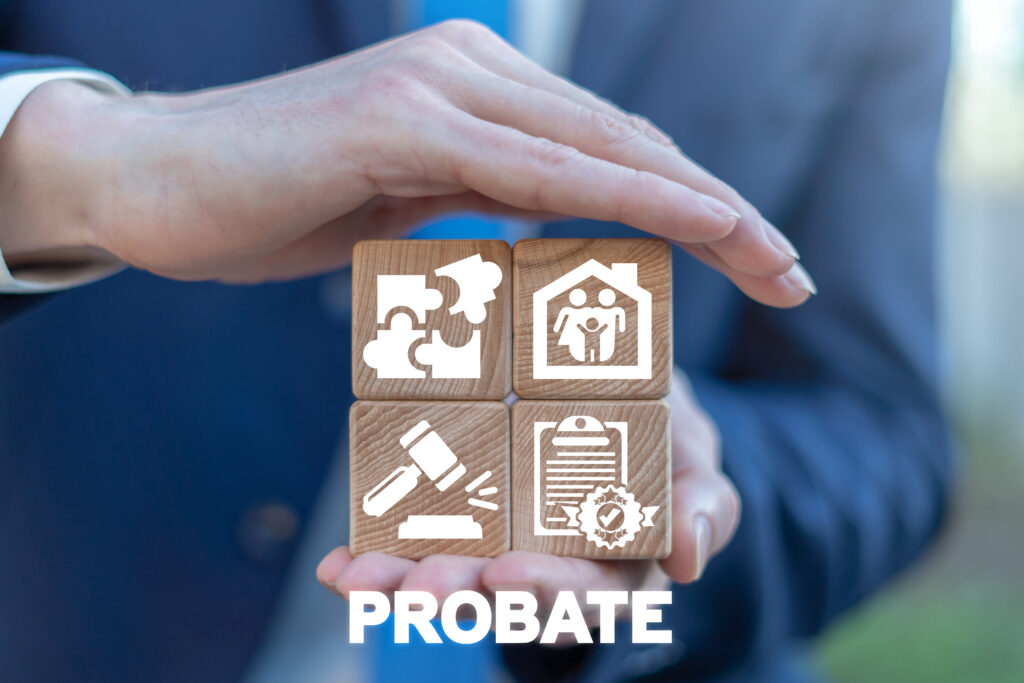Caring for a person with Alzheimer’s disease (AD) at home is a difficult task and can become overwhelming at times. Each day brings new challenges as the caregiver copes with changing levels of ability and new patterns of behavior. Research has shown that caregivers themselves often are at increased risk for depression and illness, especially if they do not receive adequate support from family, friends, and the community.
One of the biggest struggles caregivers face is dealing with the difficult behaviors of the person they are caring for. Dressing, bathing, eating-basic activities of daily living-often become difficult to manage for both the person with AD and the caregiver. Having a plan for getting through the day can help caregivers cope. Many caregivers have found it helpful to use strategies for dealing with difficult behaviors and stressful situations. Through trial and error you will find that some of the following tips work, while others do not. Each person with AD is unique and will respond differently, and each person changes over the course of the disease. Do the best you can, and remind yourself to take breaks.
1. Dealing with the Diagnosis
Finding out that a loved one has Alzheimer’s disease can be stressful, frightening, and overwhelming. As you begin to take stock of the situation, here are some tips that may help:
* Ask the doctor any questions you have about AD. Find out what treatments might work best to alleviate symptoms or address behavior problems.
* Contact organizations such as the Alzheimer’s Association and the Alzheimer’s Disease Education and Referral (ADEAR) Center for more information about the disease, treatment options, and caregiving resources. Some community groups may offer classes to teach caregiving, problem-solving, and management skills. See page 20 for information on contacting the ADEAR Center and a variety of other helpful organizations.
* Find a support group where you can share your feelings and concerns. Members of support groups often have helpful ideas or know of useful resources based on their own experiences. Online support groups make it possible for caregivers to receive support without having to leave home.
* Study your day to see if you can develop a routine that makes things go more smoothly. If there are times of day when the person with AD is less confused or more cooperative, plan your routine to make the most of those moments. Keep in mind that the way the person functions may change from day to day, so try to be flexible and adapt your routine as needed.
* Consider using adult day care or respite services to ease the day-to-day demands of caregiving. These services allow you to have a break while knowing that the person with AD is being well cared for.
* Begin to plan for the future. This may include getting financial and legal documents in order, investigating long-term care options, and determining what services are covered by health insurance and Medicare.
2. Communication
Trying to communicate with a person who has AD can be a challenge. Both understanding and being understood may be difficult.
* Choose simple words and short sentences and use a gentle, calm tone of voice.
* Avoid talking to the person with AD like a baby or talking about the person as if he or she weren’t there.
* Minimize distractions and noise-such as the television or radio-to help the person focus on what you are saying.
* Call the person by name, making sure you have his or her attention before speaking.
* Allow enough time for a response. Be careful not to interrupt.
* If the person with AD is struggling to find a word or communicate a thought, gently try to provide the word he or she is looking for.
* Try to frame questions and instructions in a positive way.
While some people with AD don’t mind bathing, for others it is a frightening, confusing experience. Advance planning can help make bath time better for both of you.
3. Bathing
* Plan the bath or shower for the time of day when the person is most calm and agreeable. Be consistent. Try to develop a routine.
* Respect the fact that bathing is scary and uncomfortable for some people with AD. Be gentle and respectful. Be patient and calm.
* Tell the person what you are going to do, step by step, and allow him or her to do as much as possible.
* Prepare in advance. Make sure you have everything you need ready and in the bathroom before beginning. Draw the bath ahead of time.
* Be sensitive to the temperature. Warm up the room beforehand if necessary and keep extra towels and a robe nearby. Test the water temperature before beginning the bath or shower.
* Minimize safety risks by using a handheld showerhead, shower bench, grab bars, and nonskid bath mats. Never leave the person alone in the bath or shower.
* Try a sponge bath. Bathing may not be necessary every day. A sponge bath can be effective between showers or baths.
4. Eating
Eating can be a challenge. Some people with AD want to eat all the time, while others have to be encouraged to maintain a good diet.
* View mealtimes as opportunities for social interaction and success for the person with AD. Try to be patient and avoid rushing, and be sensitive to confusion and anxiety.
* Aim for a quiet, calm, reassuring mealtime atmosphere by limiting noise and other distractions.
* Maintain familiar mealtime routines, but adapt to the person’s changing needs.
* Give the person food choices, but limit the number of choices. Try to offer appealing foods that have familiar flavors, varied textures, and different colors.
* Serve small portions or several small meals throughout the day. Make healthy snacks, finger foods, and shakes available. In the earlier stages of dementia, be aware of the possibility of overeating.
* Choose dishes and eating tools that promote independence. If the person has trouble using utensils, use a bowl instead of a plate, or offer utensils with large or built-up handles. Use straws or cups with lids to make drinking easier.
* Encourage the person to drink plenty of fluids throughout the day to avoid dehydration.
* As the disease progresses, be aware of the increased risk of choking because of chewing and swallowing problems.
* Maintain routine dental checkups and daily oral health care to keep the mouth and teeth healthy.
5. Activities
What to do all day? Finding activities that the person with AD can do and is interested in can be a challenge. Building on current skills generally works better than trying to teach something new.
* Don’t expect too much. Simple activities often are best, especially when they use current abilities.
* Help the person get started on an activity. Break the activity down into small steps and praise the person for each step he or she completes.
* Watch for signs of agitation or frustration with an activity. Gently help or distract the person to something else.
* Incorporate activities the person seems to enjoy into your daily routine and try to do them at a similar time each day.
* Try to include the person with AD in the entire activity process. For instance, at mealtimes, encourage the person to help prepare the food, set the table, pull out the chairs, or put away the dishes. This can help maintain functional skills, enhance feelings of personal control, and make good use of time.
* Take advantage of adult day services, which provide various activities for the person with AD, as well as an opportunity for caregivers to gain temporary relief from tasks associated with caregiving. Transportation and meals often are provided.
6. Hallucinations and Delusions
As the disease progresses, a person with AD may experience hallucinations and/or delusions. Hallucinations are when the person sees, hears, smells, tastes, or feels something that is not there. Delusions are false beliefs from which the person cannot be dissuaded.
* Sometimes hallucinations and delusions are a sign of a physical illness. Keep track of what the person is experiencing and discuss it with the doctor.
* Avoid arguing with the person about what he or she sees or hears. Try to respond to the feelings he or she is expressing, and provide reassurance and comfort.
* Try to distract the person to another topic or activity. Sometimes moving to another room or going outside for a walk may help.
* Turn off the television set when violent or disturbing programs are on. The person with AD may not be able to distinguish television programming from reality.
* Make sure the person is safe and does not have access to anything he or she could use to harm anyone.
7. Home Safety
Caregivers of people with AD often have to look at their homes through new eyes to identify and correct safety risks. Creating a safe environment can prevent many stressful and dangerous situations. The ADEAR Center offers the booklet, Home Safety for People with Alzheimer’s Disease, which lists many helpful tips.
Install secure locks on all outside windows and doors, especially if the person is prone to wandering. Remove the locks on bathroom doors to prevent the person from accidentally locking himself or herself in.
* Use childproof latches on kitchen cabinets and anyplace where cleaning supplies or other chemicals are kept.
* Label medications and keep them locked up. Also make sure knives, lighters and matches, and guns are secured and out of reach.
* Keep the house free from clutter. Remove scatter rugs and anything else that might contribute to a fall. Make sure lighting is good both inside and out.
* Be alert to and address kitchen-safety issues, such as the person forgetting to turn off the stove after cooking. Consider installing an automatic shut-off switch on the stove to prevent burns or fire.
8. Visiting the Doctor
It is important that the person with AD receive regular medical care. Advance planning can help the trip to the doctor’s office go more smoothly.
* Try to schedule the appointment for the person’s best time of day. Also, ask the office staff what time of day the office is least crowded.
* Let the office staff know in advance that this person is confused. If there is something they might be able to do to make the visit go more smoothly, ask.
* Don’t tell the person about the appointment until the day of the visit or even shortly before it is time to go. Be positive and matter-of-fact.
* Bring along something for the person to eat and drink and any activity that he or she may enjoy.
* Have a friend or another family member go with you on the trip, so that one of you can be with the person while the other speaks with the doctor.
9. Visiting a Person with AD
Visitors are important to people with AD. They may not always remember who the visitors are, but just the human connection has value. Here are some ideas to share with someone who is planning to visit a person with AD.
* Plan the visit at the time of the day when the person is at his or her best. Consider bringing along some kind of activity, such as something familiar to read or photo albums to look at, but be prepared to skip it if necessary.
* Be calm and quiet. Avoid using a loud tone of voice or talking to the person as if he or she were a child. Respect the person’s personal space and don’t get too close.
* Try to establish eye contact and call the person by name to get his or her attention. Remind the person who you are if he or she doesn’t seem to recognize you.
* If the person is confused, don’t argue. Respond to the feelings you hear being communicated, and distract the person to a different topic if necessary.
If the person doesn’t recognize you, is unkind, or responds angrily, remember not to take it personally. He or she is reacting out of confusion.
10. Choosing a Nursing Home
For many caregivers, there comes a point when they are no longer able to take care of their loved one at home. Choosing a residential care facility-a nursing home or an assisted living facility-is a big decision, and it can be hard to know where to start.
* It’s helpful to gather information about services and options before the need actually arises. This gives you time to explore fully all the possibilities before making a decision.
* Determine what facilities are in your area. Doctors, friends and relatives, hospital social workers, and religious organizations may be able to help you identify specific facilities.
* Make a list of questions you would like to ask the staff. Think about what is important to you, such as activity programs, transportation, or special units for people with AD.
* Contact the places that interest you and make an appointment to visit. Talk to the administration, nursing staff, and residents.
* Observe the way the facility runs and how residents are treated. You may want to drop by again unannounced to see if your impressions are the same.
* Find out what kinds of programs and services are offered for people with AD and their families. Ask about staff training in dementia care, and check to see what the policy is about family participation in planning patient care.
* Check on room availability, cost and method of payment, and participation in Medicare or Medicaid. You may want to place your name on a waiting list even if you are not ready to make an immediate decision about long-term care.
* Once you have made a decision, be sure you understand the terms of the contract and financial agreement. You may want to have a lawyer review the documents with you before signing.
* Moving is a big change for both the person with AD and the caregiver. A social worker may be able to help you plan for and adjust to the move. It is important to have support during this difficult transition.
For More Information
Several organizations offer information for caregivers about AD. To learn more about support groups, services, research, and additional publications, you may wish to contact the following:
Alzheimer’s Disease Education & Referral (ADEAR) Center
Web address: www.alzheimers.nia.nih.gov
Alzheimer’s Association
Web address: www.alz.org
Children of Aging Parents
Web address: www.caps4caregivers.org
Eldercare Locator
Web address: www.eldercare.gov
Family Caregiver Alliance
Web address: www.caregiver.org
The National Institute on Aging Information Center
Web address: www.nia.nih.gov
The Simon Foundation for Continence
Web address: www.simonfoundation.org
Well Spouse Association
Web address: www.wellspouse.org
Source: U.S. Department of Health and Human Services, Public Health Services, National Institutes of Health, National Institute on Aging – March 2007, Oct 26, 2007
http://www.nia.nih.gov/Alzheimers/Publications/caregiverguide.htm#intro
The National Institute on Aging gratefully acknowledges the following Alzheimer’s Disease Centers for their valuable contributions: Duke University Joseph and Kathleen Bryan Alzheimer’s Disease Research Center and The Johns Hopkins University Alzheimer’s Disease Center.
For more information: www.nia.nih.gov














